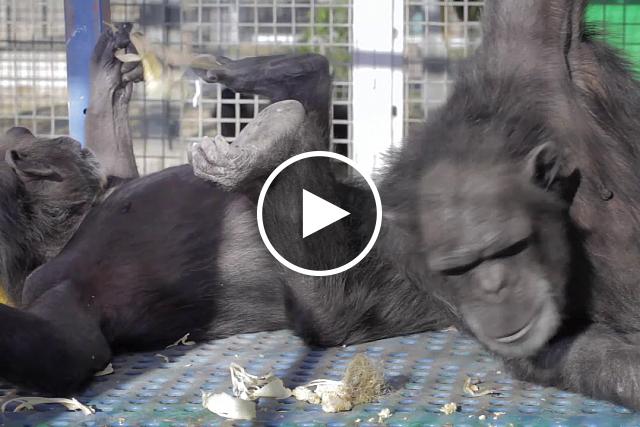You are here
October 24, 2019
Statement on NIH Chimpanzees at the Alamogordo Primate Facility
Since my 2015 decision to end NIH’s support of biomedical research using chimpanzees, NIH has been successful in relocating many of the chimpanzees we own or support to Chimp Haven, the federal sanctuary in Keithville, Louisiana. The transport of the chimpanzees is done in close coordination between NIH, Chimp Haven, and the three primate facilities that are responsible for the chimpanzees’ care and welfare until they are transferred to the sanctuary. The three facilities are the Alamogordo Primate Facility (APF), New Mexico, the Keeling Center for Comparative Medicine and Research, Bastrop, Texas, and the Southwest National Primate Center, San Antonio, Texas.
As chimpanzees age, they can develop serious chronic conditions, such as heart disease and diabetes. In fact, about half of the NIH chimpanzees are considered geriatric. Anticipating that some chimpanzees may not be able to move for health reasons, the three primate facilities and Chimp Haven have worked together to develop standard criteria to evaluate and compare the health of the chimpanzees at their locations.
APF is now down to 44 of its frailest chimpanzees, having moved all that could be safely moved to the sanctuary. Using a defined protocol, a panel of NIH veterinarians, independent of the three primate facilities, Chimp Haven, and the NIH Chimpanzee Program, evaluated the remaining 44 APF chimpanzees and advised NIH that it would be a serious risk to the chimpanzees’ health to move them. Accordingly, NIH expects that these 44 chimpanzees will live out the remainder of their lives at APF to ensure their safety and welfare. Chimpanzees at APF have indoor/outdoor living conditions in structures called Primadomes that allow them to climb and swing. They have strong dependency on their social groups as well as close bonds with their caretakers, from whom they receive excellent care.
NIH will continue to relocate all NIH-owned or -supported chimpanzees at the other two primate facilities that can safely move to Chimp Haven. Over the last year, 59 chimpanzees were relocated from the Keeling Center to the federal sanctuary. Plans are being made to begin moving NIH-supported chimpanzees at the Southwest National Primate Center to Chimp Haven. However, we anticipate that some chimpanzees at these two locations also will need to remain in place for health reasons. All decisions will be captured in our annual census.
I am grateful to the primate facilities and Chimp Haven for working so collaboratively and in the best interest of the chimpanzees.
Francis S. Collins, M.D., Ph.D.
Director, National Institutes of Health

